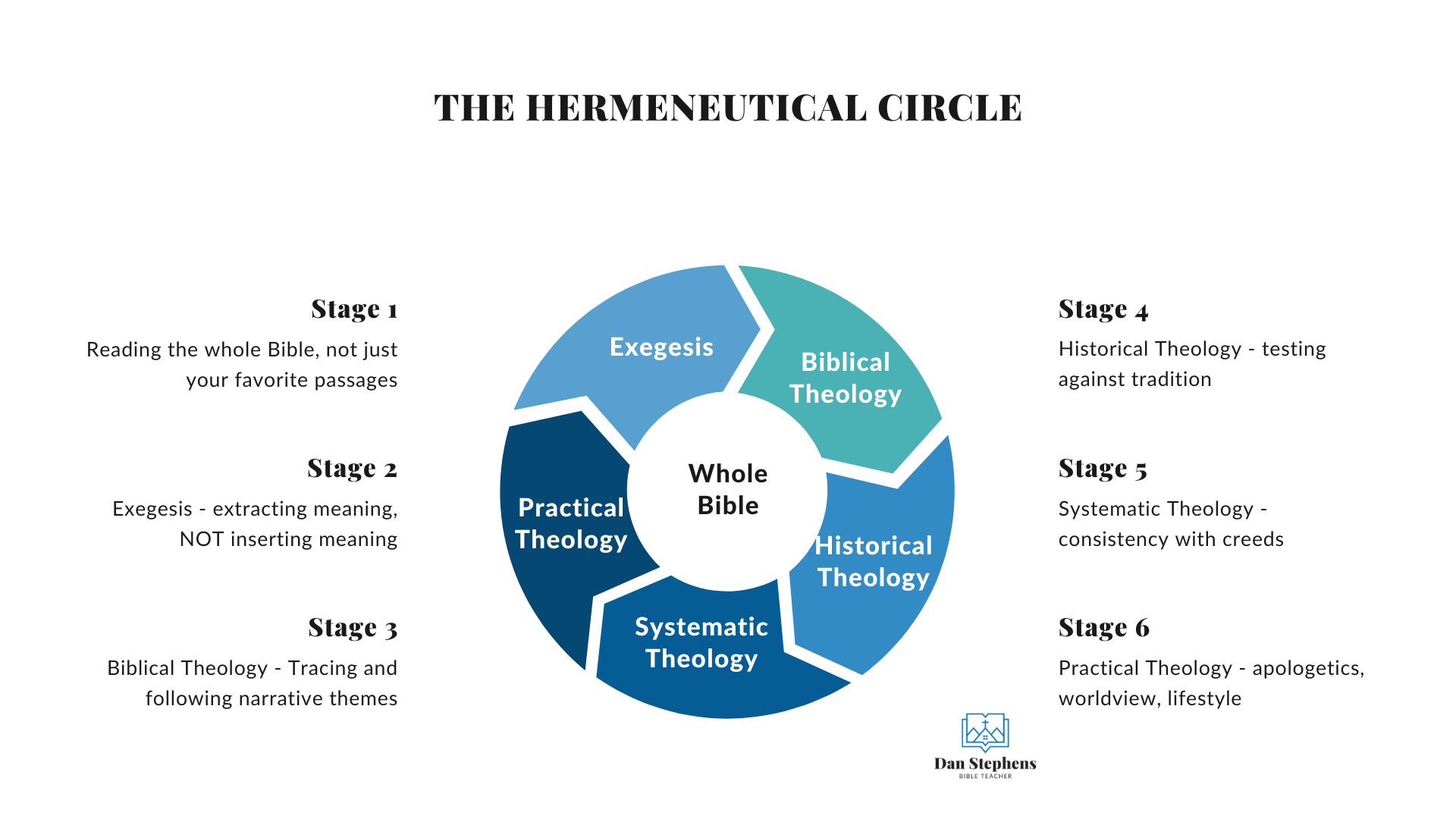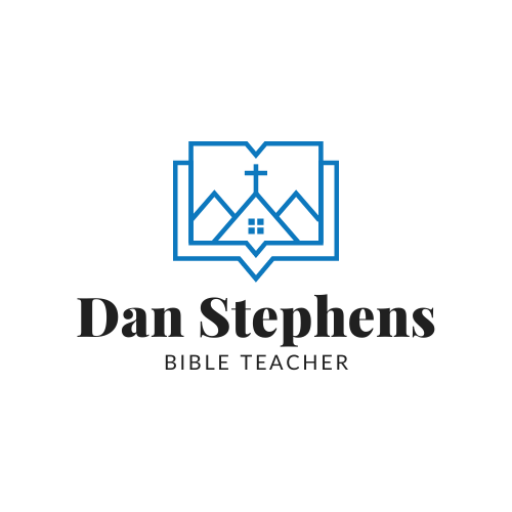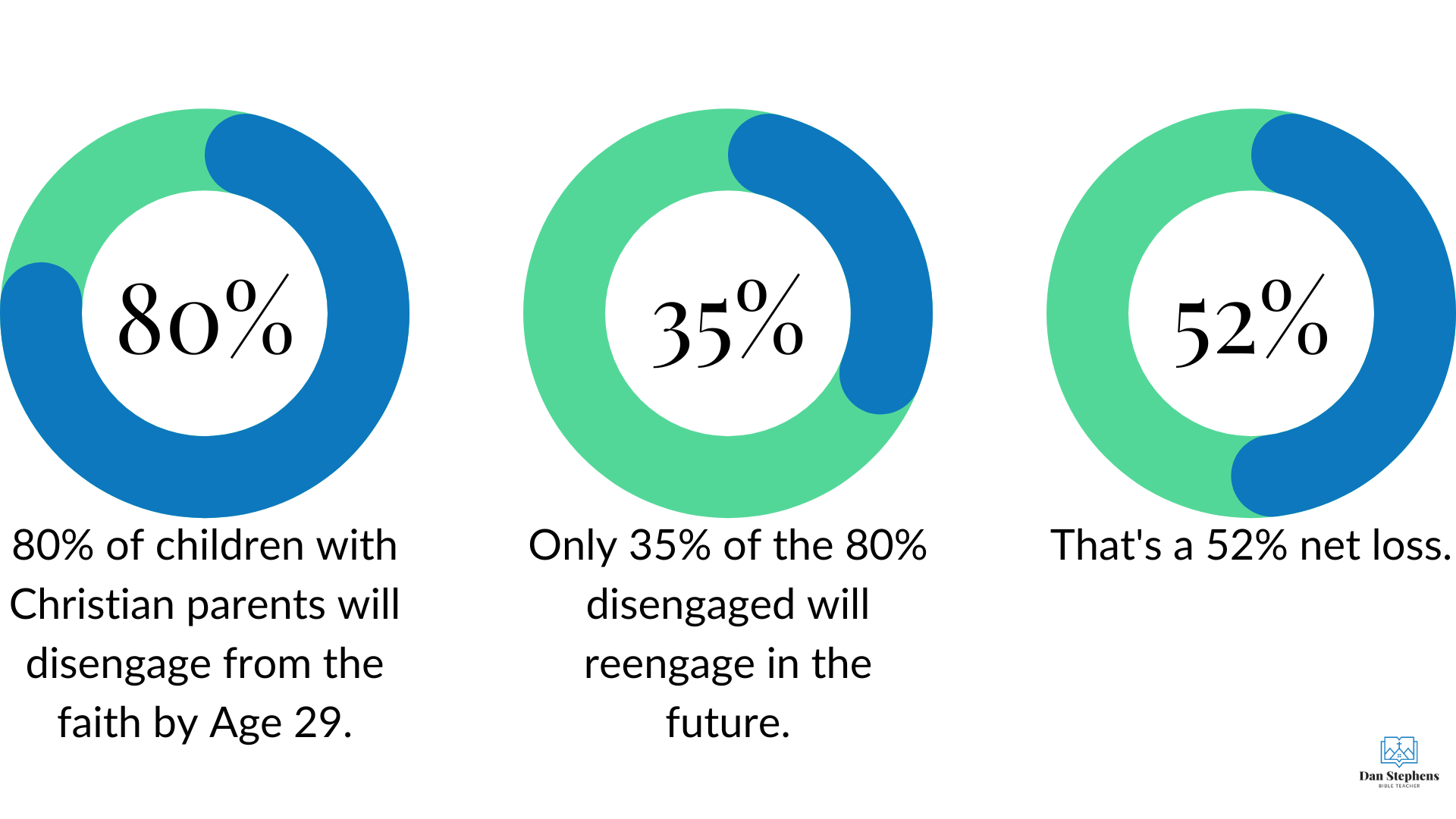Private Bible Classes for 6th-12th Grade Students
Helping students grow in Biblical literacy and begin to think theologically. RegisterAsk a QuestionWhere and When?
Faith Bible Church, 17230 N 59th Ave, Glendale, AZ 85308.
Thursdays from 11:00 AM to 12:00 PM.
The 23-24 first trimester runs from August 24th to October 26th.
The 23-24 second trimester runs from November 9th to February 1st, with no class on November 23rd, December 21st, or December 28th.
The 23-24 third trimester runs from February 15th to April 18th.
Why Bible Education is Important
Research indicates that 80% of children raised in the church with Christian parents will disengage from the faith by age 29, and only 35% of those will reengage sometime later (a net loss of 72%). The numbers vary by research house and study, but the theme is consistent: as a culture, we are failing to pass on our faith to the next generation. The three largest contributors to this failure are Biblical illiteracy, lack of parental participation in discipleship, and lack of discipleship from adults outside the home. Parents are always invited to join the class.
The root cause of the lack of discipleship by both parents and adults outside the home is Biblical illiteracy. The crisis in Biblical literacy is widely acknowledged.
- Discipling in an Age of Biblical Illiteracy
- Biblical Literacy Crises
- The Bible in America, 6-year Trends
- Bible Readership in the USA
This crisis in Biblical literacy leaves Christians unprepared to face our times, unable to discern sound doctrine from false teaching, and unable to take the teachings of the Bible seriously. No matter how many good Christian books there are (including theology books), we should always be reading the Bible first and most.
My Bible classes increase Biblical literacy, and my character classes help equip young men and their spiritual fathers for serious discipleship.This series of classes will help students to read the Bible first and most and to learn the hermeneutical circle described in this article by D.A. Carson. If we take RC Sproul's book and argument, Everyone's a Theologian, seriously, then the core components of the course series will prepare students to think theologically about all of life. Students who take the series starting in 6th grade and participate in the summer courses will read the whole Bible 13 times and build an introductory familiarity with Biblical Theology, Historical Theology, Systematic Theology, Leadership/Pastoral Theology, and Apologetics/Worldview. I pray that deep familiarity with Bible and Theology will equip students with resilient faith. I also hope that parents are deeply engaged in the discipleship of their students and that this course series is a complement and supplement to what they are already doing.
Key Learning Objectives
Years one through six invest one year each into the steps of the hermeneutical circle. Year seven is a synthesis year, helping students tie together the lessons of the previous six years.

- Students will read as much of the Bible as possible (ideally, the whole Bible, but that will be out of reach for some students).**
- Students will consider the contents of Protestant Christian Scripture from a new angle of focus (Biblical Theology, Historical Theology, Systematic Theology, Leadership/Pastoral Theology, or Apologetics/Worldview).
- Students will coherently synthesize each angle of focus with the previous angles of focus.
- Students will participate in respectful and edifying discussions with fellow students from diverse Christian perspectives on the entire contents of Protestant Christian Scripture, Biblical Theology, Historical Theology, Systematic Theology, Leadership/Pastoral Theology, or Apologetics/Worldview).
- Students will participate in discussions in class and in the Faithlife Group for the class (Faithlife Groups are an online discussion forum provided by Faithlife, the makers of Logos Bible Software).
**The reading burden in this course series is substantial. The full assigned reading will not be in reach for every student who takes the class. That's okay. Reading the Bible is like hiking the Grand Canyon. There is so much to see that you'll never see it on one trip or one read-through. Genuine effort is expected from all students to read as much as possible. If you can't see it all or read it all, you'll catch it on a future “trip” or read-through. You can go slow, or you can go fast. There is a benefit to both.
Course Series Outline
All new students, regardless of grade level, will start in Year One. Students may start this course series as early as the sixth grade.
All classes will be more focused on discussion than lectures. This helps students develop a sense of community and connection with each other as they study God's word, and it helps increase comprehension and retention. In general, the discussion questions will roughly follow the prompt questions for the papers. The specific mix of discussion questions in each class session will depend on the engagement of the class, the mix of students, grade levels, and the level of papers the class is writing as a whole.
Years One and Two
Reading
Year 1: Chronological Bible Read Through, with a Bible translation of the student's choice.
Year 2: Canonical Bible Read Through, with a Bible translation of the student's choice.
Papers
First and second-year students will write one paper per week
Give at least one paragraph in answer to at least three of the questions below (you choose which questions to answer). A paragraph is three to five complete sentences. Correct spelling and grammar are expected. If you disagree with any of the notes or commentary, you are expected to phrase your disagreements as open-ended questions. An open-ended question begins with either who, what, why, where, when, or how.
- What did you learn about God in this week's reading?
- What did you learn about people in this week's reading?
- What did you learn about God's law and the Gospel in this week's reading?
- What did you learn about Biblical Wisdom in this week's reading?
- What questions do you have about God, people, God's law, the Gospel, or the Bible, based on this week's reading?
- How will you apply this week's reading to your life?
- With whom will you share what you have learned this week?
Year Three
Reading
Read the NIV Biblical Theology Study Bible.
Papers
Third year students will write one paper per week.
Give at least one paragraph in answer to each of the following questions for each week's assigned reading. A paragraph is three to five complete sentences. Correct spelling and grammar are expected. If you disagree with any of the notes or commentary, you are expected to phrase your disagreements as open-ended questions. An open-ended question begins with either who, what, why, where, when, or how.
- What did you learn about God or people?
- What did you learn about God's law, the Gospel, or Biblical Wisdom?
- What did you learn about the Biblical story?
- What themes stood out to you most in the assigned Bible reading?
- What outstanding questions do you have about the assigned Bible reading (cite the verses or pages that raised these questions)?
- How did the commentary and notes help your understanding of the Biblical story?
- What outstanding questions do you have about topics raised by the commentary or notes (cite the verses or pages that raised these questions)?
Year Four
Reading
Read a Bible of your choice and Historical Theology: An Introduction to Christian Doctrine by Gregg Allison.
Papers
Fourth-year students will write three papers per trimester.
Give at least two paragraphs in answer to each of the following questions for the reading that you have completed so far. A paragraph is three to five complete sentences. Correct spelling and grammar are expected. If you disagree with any of the notes or commentary, you are expected to phrase your disagreements as open-ended questions. An open-ended question begins with either who, what, why, where, when, or how. Your answers to each question should consider lessons learned from prior years in this course. You may use your papers from prior years for reference.
- What did you learn about God or people?
- What did you learn about God's law, the Gospel, or Biblical Wisdom?
- What did you learn about Historical Theology?
- What theological topics stood out to you most in the assigned Bible reading?
- How do the theological topics from this reading interact with narrative themes that you learned about last year?
- What outstanding questions do you have about the assigned Bible reading (cite the verses or pages that raised these questions)?
- How did the textbook and/or lectures from Dr. Allison help your understanding of Historical Theology or of the Biblical story?
- What outstanding questions do you have about topics raised by the textbook or lectures (cite the verses or pages that raised these questions)?
Year Five
Reading
Read the ESV Systematic Theology Study Bible.
Papers
Fifth-year students will write two papers per trimester.
Give at least three paragraphs in answer to each of the following questions for the reading you have completed so far. A paragraph is three to five complete sentences. Correct spelling and grammar are expected. If you disagree with any of the notes or commentary, you are expected to phrase your disagreements as open-ended questions. An open-ended question begins with either who, what, why, where, when, or how. Your answers to each question should consider lessons learned from prior years in this course. You may use your papers from prior years for reference.
- What did you learn about God or people?
- What did you learn about God's law, the Gospel, or Biblical Wisdom?
- What did you learn about Systematic Theology?
- What theological topics stood out to you most in the assigned Bible reading?
- How do the theological topics from this reading interact with narrative themes from Biblical Theology?
- How do the theological topics from this reading interact with topics from Historical Theology?
- What outstanding questions do you have about the assigned Bible reading (cite the verses or pages that raised these questions)?
- How did the commentary and notes help your understanding of Systematic Theology, Historical Theology, or the Biblical story?
- What outstanding questions do you have about topics raised by the commentary or notes (cite the verses or pages that raised these questions)?
Year Six
Reading
Read the Maxwell Leadership Study Bible.
Papers
Sixth-year students will write two papers per trimester.
Give at least four paragraphs in answer to each of the following questions for the reading that you have completed so far. A paragraph is three to five complete sentences. Correct spelling and grammar are expected. If you disagree with any of the notes or commentary, you are expected to phrase your disagreements as open-ended questions. An open-ended question begins with either who, what, why, where, when, or how. Your answers to each question should consider lessons learned from prior years in this course. You may use your papers from prior years for reference.
- What did you learn about God or people?
- What did you learn about God's law, the Gospel, or Biblical Wisdom?
- What did you learn about Systematic Theology?
- What theological topics stood out to you most in the assigned Bible reading?
- How do the theological topics from this reading interact with narrative themes from Biblical Theology?
- How do the theological topics from this reading interact with topics from Historical Theology?
- What outstanding questions do you have about the assigned Bible reading (cite the verses or pages that raised these questions)?
- How did the commentary and notes help your understanding of Systematic Theology, Historical Theology, or the Biblical story?
- What outstanding questions do you have about topics raised by the commentary or notes (cite the verses or pages that raised these questions)?
Year Seven
Reading
Select a Bible read-through of your choice (any of the six options above).
Papers
Seventh Year students will write two papers per trimester.
Select from a menu of leadership or life-on-mission scenarios and/or from a menu of current issues in culture and news. Give at least five paragraphs in answer to each of the following questions.
- What does Protestant Christian Scripture say about this scenario or issue?
- What is God's law applied to this scenario or issue?
- How does the Gospel apply to this scenario or issue?
- How does Biblical Wisdom apply to this scenario or issue?
- What themes from the Biblical Narrative should inform how Christians respond to this issue or scenario?
- What Historical Theological topics should inform how Christians respond to this issue or scenario?
- What Systematic Theological topics should inform how Christians respond to this issue or scenario?
- What Leadership Principles should inform how Christians respond to this issue or scenario?
- What questions would you ask Christian brothers or sisters who disagree with your handling of this issue or scenario? Your questions should be open-ended questions. Cite specific Biblical texts, Biblical Narrative Themes, Theological Topics, or Leadership Principles.
- How would you explain your position to unbelieving neighbors on this issue or scenario?
- What questions would you ask unbelieving neighbors about this issue or scenario? Your questions should be open-ended. Cite specific Biblical texts, Biblical Narrative Themes, Theological Topics, or Leadership Principles.
Topic Menu
Each Trimester, we'll add to this topic menu based on current events and news.
| Should Christians use the US tax code to pay lower taxes? | Should Christians be involved in politics? | How should Christians choose which political candidates to vote for? |
| Should Christians vote? | LGBTQIA+ | Should Christians work for corporations? |
| Should Christians be business owners? | Should Christians support the 2nd Amendment? | Depending on the Holy Spirit vs. faith that generates works |
| Physical self-discipline | Emotional self-discipline | Dealing with conflict |
| Spiritual self-discipline | Building friendships | Pursuing a vocation |
| Dating and marriage | Parenting styles | Defeating financial temptation |
| Defeating sexual temptation | Defeating the temptation of power |

